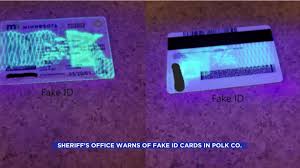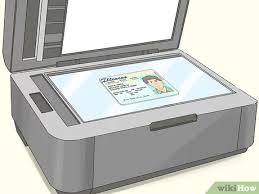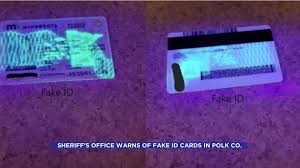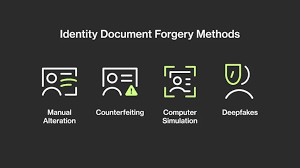Fake ID market analysis
Table of Contents
Introduction: Overview of the Fake ID Market
1.1. What is a Fake ID?
1.2. Historical Background and Evolution of Fake IDs
1.3. Importance of Market Analysis in Understanding Fake IDsProduct Features and Characteristics of Fake IDs
2.1. Technological Advancements: Making Fake IDs More Convincing
2.2. Physical Features: Holograms, Magnetic Strips, and Barcodes
2.3. Online Availability and Ordering Processes
2.4. Quality Tiers: High-end vs. Low-end Fake IDsMarket Demand for Fake IDs
3.1. Primary Drivers of Demand
3.2. Geographical Distribution: Where Are Fake IDs Most Common?
3.3. The Impact of Technological Advancements on DemandTarget Audience: Who Buys Fake IDs?
4.1. Age Groups: Underage Individuals and College Students
4.2. Professionals in High-risk Jobs
4.3. Use of Fake IDs for Fraudulent ActivitiesMarket Size and Growth
5.1. Estimating the Size of the Fake ID Market
5.2. Growth Patterns Over the Last Decade
5.3. Key Players in the Market: Manufacturers and DistributorsLegal Implications and Risks
6.1. Laws Surrounding Fake IDs Across Different Countries
6.2. Legal Risks for Buyers and Sellers
6.3. Law Enforcement Strategies in Combating Fake IDsChallenges and Opportunities in the Fake ID Market
7.1. Technological Challenges in Creating Convincing Fake IDs
7.2. The Role of Blockchain and Cryptography in Counterfeit Prevention
7.3. Opportunities for Businesses Operating in Legal Grey AreasEthical and Societal Implications of Fake ID Usage
8.1. Underage Drinking and Access to Restricted Venues
8.2. Fake IDs and Identity Theft
8.3. The Societal Impact of Widespread Fake ID UsageFuture Trends in the Fake ID Market
9.1. Technological Innovations
9.2. Shifts in Consumer Behavior
9.3. Regulatory Changes and Their Potential Impact on the MarketConclusion: The Road Ahead for the Fake ID Market
1. Introduction: Overview of the Fake ID Market
1.1 What is a Fake ID?
A fake ID refers to any identification document that is forged or altered to misrepresent someone's identity, most commonly used to falsify one's age. While many associate fake IDs with underage drinking, their uses extend far beyond that. They are utilized for fraud, access to restricted areas, evading the law, or obtaining services illegally. As technologies evolve, the sophistication of fake IDs has reached new heights, making them harder to detect.
1.2 Historical Background and Evolution of Fake IDs
Fake IDs have existed for decades, with early forms of counterfeit identification dating back to the mid-20th century when youth sought to evade age restrictions at bars and clubs. Over the years, they have transitioned from rudimentary paper documents to sophisticated cards complete with holograms, magnetic strips, and scannable barcodes. The evolution of digital tools, including high-resolution printers and graphic design software, has contributed to the current landscape where fake IDs closely resemble official documents.
1.3 Importance of Market Analysis in Understanding Fake IDs
To understand the fake ID industry, it's crucial to examine the market dynamics, including supply and demand, product features, and the target audience. A thorough market analysis offers insight into the motivations behind fake ID production and consumption, helping policymakers, law enforcement, and businesses better navigate this grey market.
2. Product Features and Characteristics of Fake IDs
2.1 Technological Advancements: Making Fake IDs More Convincing
Modern fake IDs are the product of sophisticated technological advancements. Criminal networks and counterfeiters employ high-quality printers, graphic design software, and digital scanners to replicate IDs. In many cases, these fake IDs are indistinguishable from real ones. Advanced techniques include replicating UV markings, embedding RFID chips, and utilizing laser perforation to mimic official documents.
2.2 Physical Features: Holograms, Magnetic Strips, and Barcodes
In today's market, the most convincing fake IDs come with intricate details like holograms, watermarks, magnetic strips, and barcodes. These features are designed to trick even sophisticated scanning systems used in many industries, including retail, law enforcement, and airport security. Fake IDs often feature raised text and high-quality imaging to deceive physical inspections.
2.3 Online Availability and Ordering Processes
Fake IDs are now widely available online, with many websites offering to create high-quality IDs for a fee. Most of these sites operate on the dark web, but some can be accessed through mainstream search engines. Customers can choose from a variety of templates that replicate the designs of real IDs from different states and countries. Payment is typically made using cryptocurrencies, which ensures anonymity for both the buyer and the seller.
2.4 Quality Tiers: High-end vs. Low-end Fake IDs
The market for fake IDs is divided into different quality tiers. High-end fake IDs are nearly identical to official documents, often containing features such as scannable barcodes and RFID chips. Low-end fake IDs, by contrast, are often limited to basic design features and can be easily detected by more advanced scanning systems or close visual inspection.
3. Market Demand for Fake IDs
3.1 Primary Drivers of Demand
The demand for fake IDs is primarily driven by individuals seeking to bypass age restrictions, particularly for alcohol, tobacco, and entry to nightlife venues. However, a growing segment of the market involves identity theft, fraud, and illegal immigration. The anonymity provided by fake IDs allows users to access services or commit crimes without leaving an identifiable trail.
3.2 Geographical Distribution: Where Are Fake IDs Most Common?
Fake IDs are most prevalent in areas with strict age-related laws, such as the United States, where the legal drinking age is 21. College towns and cities with vibrant nightlife see higher demand. However, there is also a growing market in Europe, Asia, and South America, where fake IDs are used for various illegal purposes.
3.3 The Impact of Technological Advancements on Demand
As technology makes fake IDs more accessible and harder to detect, the demand for these products continues to rise. Online platforms and dark web marketplaces have created an easier means for individuals to acquire fake IDs without the risk of meeting in person or using traceable payment methods.
4. Target Audience: Who Buys Fake IDs?
4.1 Age Groups: Underage Individuals and College Students
The most common users of fake IDs are underage individuals, typically teenagers or young adults, who want to circumvent legal age restrictions. College students, in particular, make up a significant portion of this market. They often use fake IDs to gain entry into bars, clubs, and other venues that enforce strict age verification policies.
4.2 Professionals in High-risk Jobs
In addition to students, certain professionals in high-risk jobs, such as those working in the adult entertainment industry or illegal gambling, may use fake IDs to protect their real identities. These IDs provide a shield from law enforcement or regulatory bodies, allowing individuals to continue their activities with less risk.
4.3 Use of Fake IDs for Fraudulent Activities
Another segment of the target audience for fake IDs includes individuals involved in fraudulent activities, such as credit card fraud or bank account fraud. These people use fake IDs to create false identities, which allows them to open bank accounts, obtain loans, or commit other financial crimes without being easily traced.
5. Market Size and Growth
5.1 Estimating the Size of the Fake ID Market
Estimating the exact size of the fake ID market is difficult due to its illegal nature. However, reports indicate that the market generates millions of dollars annually, particularly through online platforms. As the demand for fake IDs continues to grow, the market has seen steady growth over the last decade.
5.2 Growth Patterns Over the Last Decade
Over the past ten years, the fake ID market has expanded considerably, with technological advancements making it easier to produce high-quality fakes. The rise of the dark web has also contributed to the growth of this market, as it provides an anonymous platform for buyers and sellers to transact without fear of detection.
5.3 Key Players in the Market: Manufacturers and Distributors
The fake ID market is dominated by a small number of manufacturers and distributors, many of whom operate on the dark web. These groups often operate in countries with lax enforcement of copyright or anti-fraud laws, allowing them to produce and distribute fake IDs with relative impunity.
6. Legal Implications and Risks
6.1 Laws Surrounding Fake IDs Across Different Countries
The laws governing the production, sale, and use of fake IDs vary from country to country. In the United States, for example, possessing or using a fake ID is considered a misdemeanor offense, while producing or selling fake IDs can result in felony charges. Other countries have similarly strict penalties, particularly in cases where fake IDs are used for fraudulent purposes.
6.2 Legal Risks for Buyers and Sellers
Both buyers and sellers of fake IDs face significant legal risks. Buyers risk criminal charges, fines, and even imprisonment if caught using a fake ID. Sellers face more severe penalties, including long-term imprisonment and substantial fines, especially if they are found to be part of an organized crime network.
6.3 Law Enforcement Strategies in Combating Fake IDs
Law enforcement agencies around the world have implemented a variety of strategies to combat the production and distribution of fake IDs. These include increased surveillance of online marketplaces, collaboration with financial institutions to track cryptocurrency transactions, and public awareness campaigns aimed at deterring potential buyers.
7. Challenges and Opportunities in the Fake ID Market
7.1 Technological Challenges in Creating Convincing Fake IDs
As real IDs become more sophisticated, counterfeiters face increasing challenges in replicating them. Governments have introduced a range of security features, such as holograms, watermarks, and laser-engraved text, that are difficult to reproduce with standard equipment. This has forced counterfeiters to invest in more advanced technology to stay competitive.
7.2 The Role of Blockchain and Cryptography in Counterfeit Prevention
Blockchain and cryptography technologies are emerging as potential solutions to the problem of counterfeit IDs. By creating decentralized databases of verified IDs, blockchain technology can help prevent the creation of fake IDs and ensure that all issued documents are authentic and tamper-proof.
7.3 Opportunities for Businesses Operating in Legal Grey Areas
Some businesses operate in legal grey areas, providing services that are technically legal but morally questionable. For example, some websites offer "novelty IDs" that are almost identical to real IDs but are sold under the pretext of being used for entertainment purposes. These businesses have found a way to exploit loopholes in the law to profit from the demand for fake IDs.
8. Ethical and Societal Implications of Fake ID Usage
8.1 Underage Drinking and Access to Restricted Venues
One of the most common uses of fake IDs is to facilitate underage drinking. This raises ethical concerns about the responsibility of bar owners, clubs, and alcohol retailers in preventing underage access. Despite these measures, the widespread availability of fake IDs undermines efforts to enforce age restrictions.
8.2 Fake IDs and Identity Theft
Fake IDs are often used in identity theft schemes, where a person assumes someone else's identity to commit fraud. This has significant societal implications, as victims of identity theft can suffer financial loss, damage to their credit, and emotional distress.
8.3 The Societal Impact of Widespread Fake ID Usage
The widespread use of fake IDs also has broader societal impacts, particularly when it comes to public trust in identification systems. If people begin to question the reliability of identification documents, it could undermine trust in institutions that rely on these systems for security and enforcement purposes.
9. Future Trends in the Fake ID Market
9.1 Technological Innovations
As technology continues to evolve, both fake ID producers and law enforcement agencies are likely to adopt new methods to outsmart one another. Innovations in 3D printing, laser etching, and digital watermarking are expected to play a significant role in the future of the fake ID market.
9.2 Shifts in Consumer Behavior
As the fake ID market continues to grow, consumer behavior is also expected to shift. More individuals may turn to fake IDs as a means of protecting their privacy in an increasingly surveillance-driven world. Others may use fake IDs to engage in illegal activities such as fraud or identity theft.
9.3 Regulatory Changes and Their Potential Impact on the Market
Governments around the world are expected to implement new regulations to combat the rising use of fake IDs. These changes may include stricter penalties for individuals caught using fake IDs, increased surveillance of online marketplaces, and greater collaboration between law enforcement agencies across borders.
10. Conclusion: The Road Ahead for the Fake ID Market
In conclusion, the fake ID market is a complex and evolving industry driven by technological advancements, consumer demand, and legal loopholes. As long as there is a demand for age verification bypasses and identity fraud, the market for fake IDs will continue to grow. Governments and law enforcement agencies face significant challenges in combating this illegal market, but technological innovations and regulatory changes offer some hope for the future.
 counterfeit identification
counterfeit identification
 fake ID laws
fake ID laws
 Fake University Cards
Fake University Cards
 ISS number on a fake ID
ISS number on a fake ID